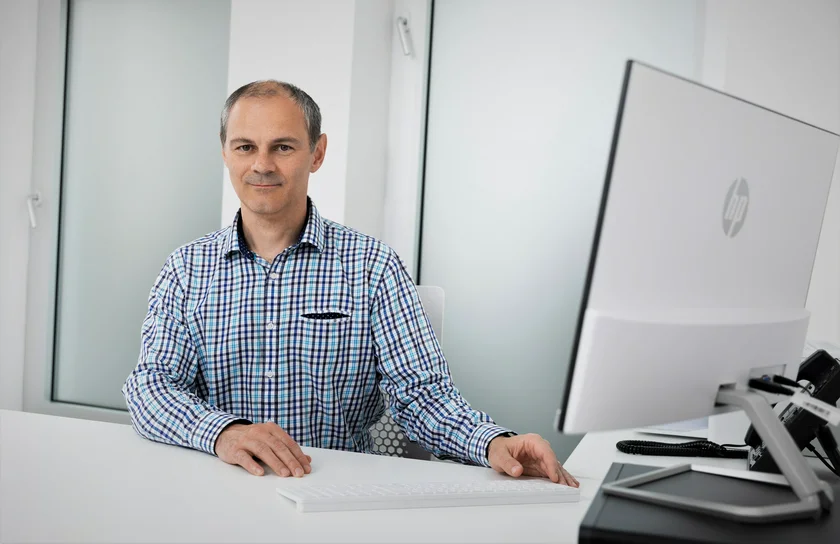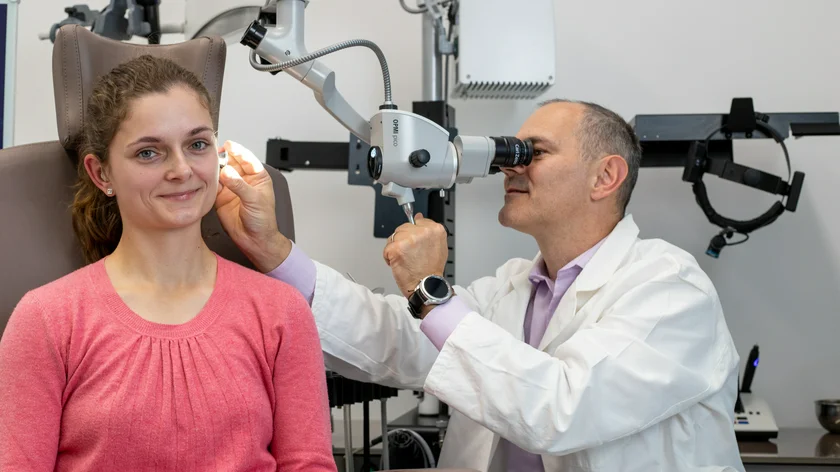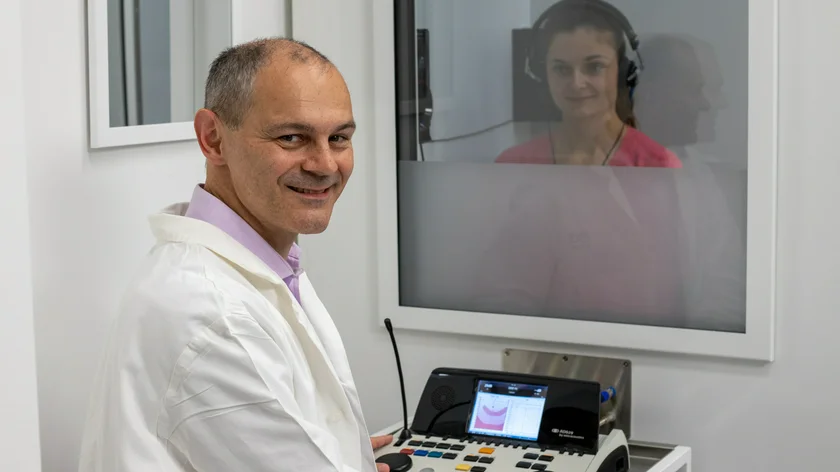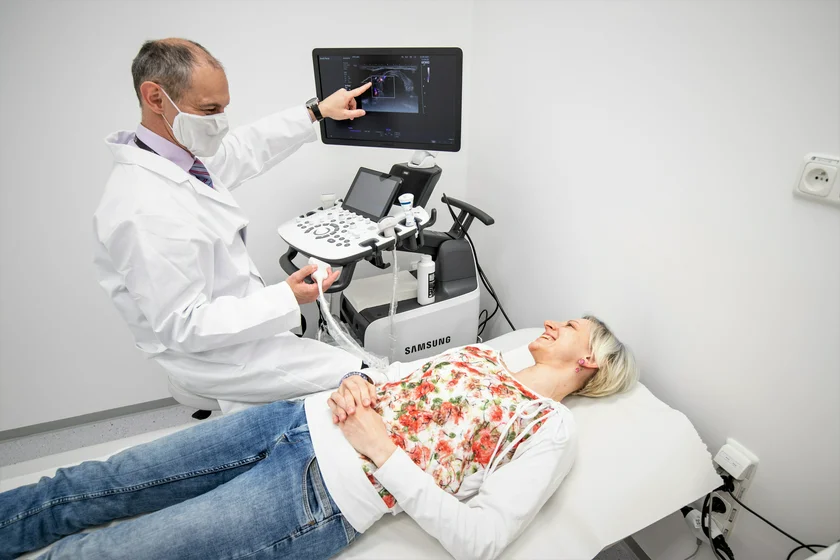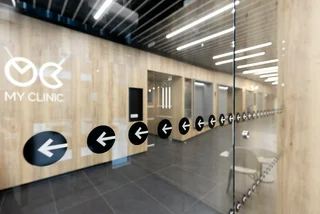Despite the sunny skies, flu season is still here, and coughing, a runny nose, headaches, and a sore throat, still prevail as the most common health complaints. “Spring flu” occurs at the turn of winter to spring when we are least resistant to cold and respiratory issues.
Cultural beliefs surrounding colds run deep, particularly in the Czech Republic where folk remedies for the sniffles – everything from tea with honey to onion cough syrup – abound and fear and loathing of air conditioning and cold drinks unite the nation.
But when should you see a specialist for these cold symptoms and can preventative care and regular screenings reduce these symptoms in the long run?
Dr. Marek Plánička is a leader in the field of otorhinolaryngology, and the head of the ORL outpatient practice (called ear, nose, and throat in layman’s terms) at My Clinic where he is supported by Dr. Alžběta Fíková and Dr. Veronika Netušilová. He spoke to us about different cultural and medical approaches to the ORL field and how My Clinic can help foreigners navigate symptoms and concerns with patience and understanding.
What was it that drew you to otorhinolaryngology, not exactly the flashiest of the medical specialties?
It’s endlessly fascinating as a field that examines humans in their complexity and brings together a variety of approaches, touching upon endocrinology, neurology, to some part also rehabilitation, physical therapy, and a number of others. It is this complexity that I enjoy a lot.
People think of illnesses related to ORL as somewhat innocuous and largely related to colds but there are a number of serious problems that go along with ear, nose, and throat discomfort.
Yes, there are many other issues. My focus is on soft tissue surgery, thyroid surgery, and surgery of the salivary glands. I was the first ENT surgeon in the Czech Republic to venture into noninvasive endoscopy of the salivary glands, and I’d love to return to this specialization at some point and further develop my skill base.
From a medical point of view, vertigo attacks are another interesting problem. Dizziness comes from a poorly coordinated sense of balance, which can have a straightforward cause such as sinusitis though there may be more behind it, even neurological or cardiological issues. Finding out the true culprit sometimes almost amounts to detective work.
Waking up at night is also a sign that something is wrong with this system, correct?
Snoring and frequent waking can also indicate that something is wrong, particularly in children. Parents should also pay attention to how often kids are sleeping as that can have an impact on immunity. If your child has frequent middle ear infections – head colds are often associated with ear infections – then you should see a specialist.
Ear infections are a good point of entry for talking about the ways in which the Czech approach to ORL issues can differ. For instance, going to the ER to drain fluid from the ear by puncturing instead of antibiotics.
There are differences between different countries, especially in the approach to kids. The Czech approach is typically to sharply open up the middle eardrum to permit normal ventilation instead of giving an antibiotic treatment. German doctors never do this to a child, they use antibiotics, sprays, and congestive treatments. In Belgium, where I have colleagues they don’t do it as often but they do it.
Breathe easy Dr. Plánička’s tips for staying healthy
- Use saline solutions in a sprayable form or oil-based nasal drops to protect mucous membranes in the nose, throat, and mouth.
- No excessive use of nose drops (no longer than one week) or frequent gargling.
- Take a teaspoon or up to a tablespoon of olive oil a day to increase the protective film across the mucous membrane.
- Breathing through the nose cleans the upper airways and positively impacts the body and mind.
And in other countries, ear infections aren’t treated as an emergency as they are here.
Outside of the Czech Republic in Western countries, all ORL doctors will say it’s not an emergency that necessitates waiting in the ER. I think it’s based on 40 years of communism when the doctor told you something and you had to trust it as the doctor was something like half-god. In the democratic world, no one is 100 percent right.
Ear pain is usually a result of congestion, the middle ear is part of the respiratory system and needs to be ventilated. Infections create liquid, so, in an old-school way, opening the middle ear is seen as better. Calm the child, give pain killers, and clear the nose. Nasal spray or antihistamine in the proper dosage for small children can stabilize the middle ear. With a fever of 38 or more and lasting ear pain, it is better to go to the ambulatory, outpatient clinic, or hospital.
On the other hand, there are some Czech ways of managing congestion that is actually quite helpful. Including the famous vacuum-cleaner attachment.
Vacuuming the nose for a child who doesn’t have the power to do it themselves is a good idea. It's tough around the ages of 3 or 4 and can be quite difficult but you need to do it. In Belgium, for instance, they have smaller devices that are not so powerful and don’t make so much noise. If you use decongestant spray then the aspiration of mucus is easier.
With adults, what are the most typical complaints that you handle among your patients this time of year?
From fall to the beginning of spring, respiratory illnesses are common; patients see us with sinusitis. Some readers may be surprised to hear that the telltale symptom of this disease, aside from a clogged or running nose, is actually a dry cough. Long-term sinusitis requires the care of an ORL specialist.
And now everyone’s taking off their masks – is this a good idea?
Masks provide solid protection of our airways and mucous membranes, not only against viruses. In colder months face masks and respirators cushion the blow of abrupt temperature changes as we breathe through them, which means the mucous membranes are less irritated. Even so, there are pros and cons. Of course, one should regularly replace one’s respirator, follow certain rules; if done properly, I’m all for it.
So when should adults visit an ORL specialist? It isn’t always easy to tell.
Your run-of-the-mill cough, common cold, or sore throat are best addressed by your general practitioner – who may then decide to recommend an examination by an ORL specialist. However, if a patient has had persisting troubles for an extended period of time, such as frequently recurring headaches or an unshakable dry cough, or newly runs a fever, or suddenly has hearing problems or experiences a complete loss of hearing, it’s best to see an ORL specialist.
Would you recommend regular preventative ORL screenings? Who benefits from them and how?
Preventative care for one’s own health ought to be a fundamental part of any active person’s approach to life, and I cannot recommend it enough. If your voice has been hoarse for some time, you have difficulty swallowing, feel pressure in the throat, or notice any hardening in the neck area, it’s important to see a specialist, especially if you come from a family with a history of cancer.
Prevention also means balancing mental and physical exertion, which greatly influences the digestive system and thus also the condition of mucous membranes in the throat and nose. A preventative examination also provides the ideal opportunity to perform minor interventions such as removing earwax plugs.
Like the eyes are the window to the soul, are clean ears a portal to good health?
Earwax quite commonly builds up in a lot of people; patients may then be hard of hearing or experience other issues such as a ring or buzz in the ears, a sensation of pressure, or even pain. At the same time, the issue is easily resolved, and if the patient sees us early – e.g. because of their biannual preventative exams – it will take only a few minutes to clear their ear canals.
What does a typical ORL examination look like?
We set aside enough time for each patient, which is a huge advantage. Taking down a comprehensive medical history is of fundamental importance for all further diagnostic and therapeutic approaches. We examine some exceedingly sensitive parts of the human body, with extreme care – we are used to working with very sensitive patients, adults and children alike. It’s completely painless but, if need be, we’ll use a topical desensitizing spray. Ultrasound screenings are an integral part of our comprehensive examinations and we use state-of-the-art devices.
The medical staff at My Clinic set a great store in an approach which is at once professional and humane.”
What other aspects set the client care at My Clinic apart from other healthcare facilities and doctor’s offices?
The big advantage of My Clinic is the comprehensiveness of care that is being provided: Our team comprises physicians with a great variety of specializations who can refer you to someone else, without any unnecessary delay. Each and every patient is given ample attention; we take note of patients’ specific needs and how they feel during examination and treatment. We share information and are able to instantly consult other experts on the problems of patients; when acute treatment becomes necessary, the patient isn’t wasting valuable time on finding a suitable physician or waiting for a free time slot in busy appointment schedules. The entire treatment process is thus sped up, which of course may be of decisive importance – above all in more serious diseases, but also in the case of standard complaints which nonetheless make the patient’s life unpleasant.
At My Clinic, you often work with clients from abroad. You speak English, German, French and Italian. Have you noticed any difference when it comes to the needs of foreign patients?
I’ve spent a fair number of years on foreign internships. I believe I’m quite capable of putting myself into the mindset of clients who are in a foreign country, who left their familiar environment, who are often exposed to enormous pressure. In terms of the quality of medical care, I see a lot of added value in the fact that we at My Clinic are used to working with these clients and that we have a lot of understanding for the kind of situations brought about by living in another country. Another obvious benefit for the client is our ability to converse with them in a language they understand – and this is true regardless of whether the patient is a child or an adult: they trust me to properly understand their complaints and needs. And that helps a lot.
In all of your years of practice, what have you learned about the different cultural attitudes toward healthcare both in ORL and in general?
I think that in general, the problem of Western medical systems is this idea that we should go to the doctor, and the doctor will help you as if the doctor is a mechanic that will miraculously help. This is a big mistake, you have to think about your own body and then go to the doctor.
I think many of us foreigners get the sense that it’s not ok to question the doctor, whereas in our home countries we are used to asking a lot of questions and leading the dialogue about our own or our children’s health.
Generally, you don't have to accept what is offered but most doctors believe their way is the best way and won’t feel comfortable if you don't accept their advice. At My Clinic, we will accept our patients’ decisions more openly.
But as a Czech doctor will you still advise us against turning up the air conditioning?
Air conditioning is not something that is absolutely necessary. It dries the air and there are rapid changes in temperature then your body has to react and more blood needs to go to circulate through your body to get you warm. So when it comes to air conditioning, I think it’s best in moderation.
This article was written in association with MY CLINIC, a new private outpatient medical clinic offering care in the fields of Internal Medicine, Endocrinology and Diabetology, Ear, Nose and Throat (ENT), Dermatology, Sonography, Rehabilitation and Physiotherapy, Gynaecology and Obstetrics, Orthopaedics, Rheumatology, Ophthalmology, Psychiatry, Psychiatry for Children and Adolescents, Psychology, Paediatrics. Read more about our partner content policies here.












 Reading time: 9 minutes
Reading time: 9 minutes 

